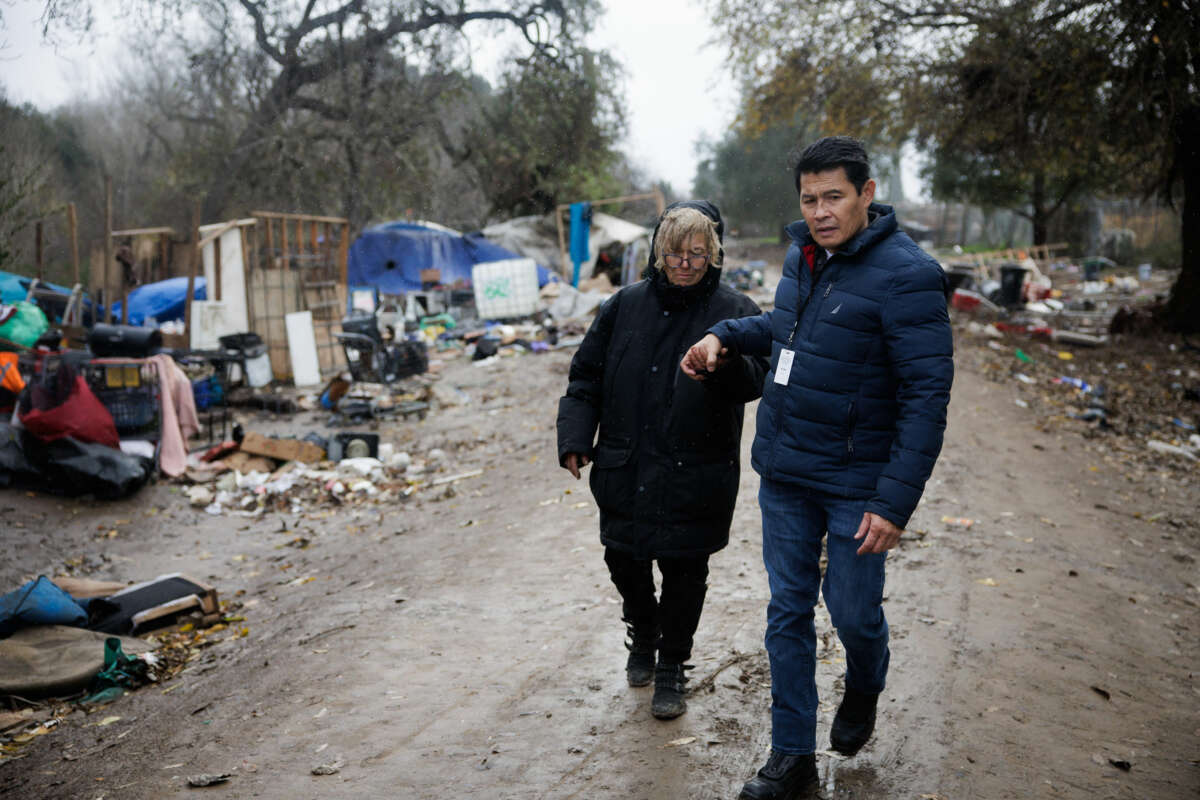Declaring that homelessness and housing insecurity is the result of “a structural failure of a country that has refused to make safe and affordable housing a priority,” U.S. Reps. Pramila Jayapal and Grace Meng on Wednesday reintroduced the Housing is a Human Right Act and called on the federal government to provide $300 billion to end the crisis facing unhoused people.
The legislation would invest more than $200 billion in affordable housing and support services, $27 billion annually for services for unhoused people, and $100 million per year for community-driven alternatives to people experiencing homelessness.
Other funds would go to support communities at heightened risk for homelessness.
“Housing is a human right, and nobody in the world should be without a place to call home, especially not in America,” said Meng (D-N.Y.). “This is an issue that impacts individuals for a number of reasons and sometimes isn’t fixed with just a physical roof above a person’s head.”
The bill was reintroduced as real estate website Realtor.com released an analysis showing that even for people who have a place to live, housing is becoming more precarious across the United States.
The U.S. Department of Housing and Urban Development recommends that people spend less than 30% of their income on housing, but eight of the country’s top 50 metropolitan areas now have “a rent share higher than 30% relative to the median household income,” including Miami, Los Angeles, New York, and San Diego.
Even in more affordable cities renters are spending more, with the average monthly rent in Cincinnati, Ohio costing 19.4% of the average monthly income — up from 18.4% last year. In Birmingham, Alabama, renters spend an average of 22.2% of their income on housing.
“As costs have risen and the minimum wage has stagnated, it would take the average minimum wage worker more than 96 hours of work per week to afford a two-bedroom rental,” noted Jayapal (D-Wash.).
The shrinking stock of affordable housing is linked to the crisis of homelessness, which more than half a million people in the U.S. experienced in 2022 — up by 3% from 2020.
“The crisis of housing instability is one that can be fixed by investing in housing infrastructure and supportive services for vulnerable communities,” said Jayapal.
The legislation has been co-sponsored by Democratic lawmakers including Reps. Jamaal Bowman of New York, Cori Bush of Missouri, James McGovern of Massachusetts, Alexandria Ocasio-Cortez of New York, and Rashida Tlaib of Michigan.
The $200 billion proposed investment included in the bill would go toward McKinney-Vento Emergency Solutions Grants, which fund engagement with people experiencing homelessness and improve emergency shelters; and Continuum of Care grants, which help rehouse people who have faced homelessness.
The legislation would also:
- Create a new grant program to invest in humane infrastructure, providing municipalities with $6 billion a year through a flexible program that will allow them to address their most urgent housing needs to keep people in stable housing and support those experiencing homelessness;
- Incentivize local investments in humane, evidence-based models to support people experiencing homelessness, including alternatives to criminalization and penalization;
- Provide $10 billion for Federal Emergency Management Agency food and shelter grants while improving grants to better represent high rates of homelessness and income inequality; and
- Authorize $100 million in grants to public libraries to provide assistance and tailored supports to persons experiencing homelessness.
“In the richest country in the world, it is a moral imperative that we take this issue head-on,” said Jayapal. “Housing is a human right — and every person deserves to have a safe place to call home.”
Join us in defending the truth before it’s too late
The future of independent journalism is uncertain, and the consequences of losing it are too grave to ignore. To ensure Truthout remains safe, strong, and free, we need to raise $17,000 by midnight tonight. Every dollar raised goes directly toward the costs of producing news you can trust.
Please give what you can — because by supporting us with a tax-deductible donation, you’re not just preserving a source of news, you’re helping to safeguard what’s left of our democracy.
